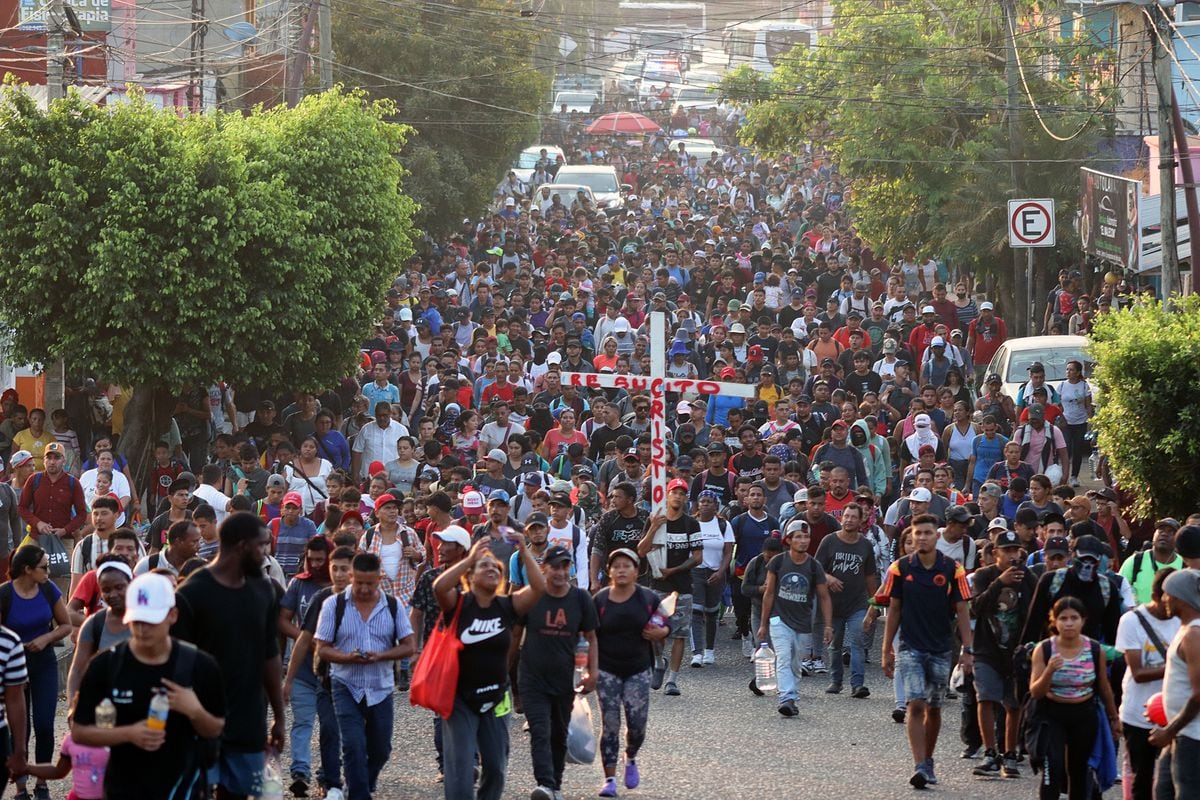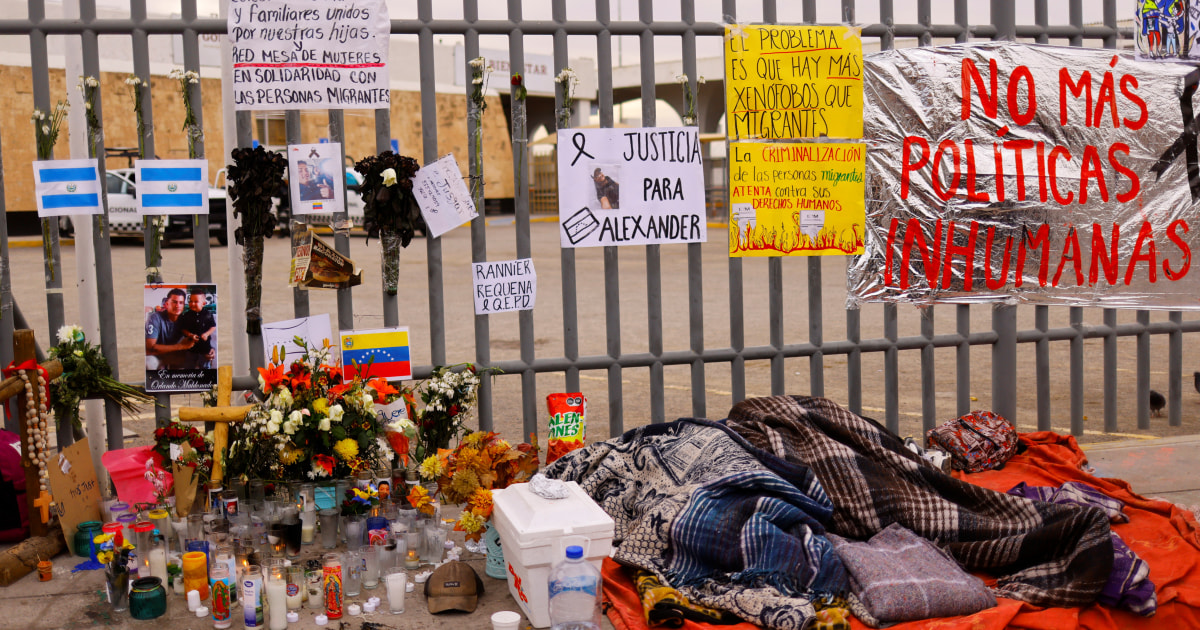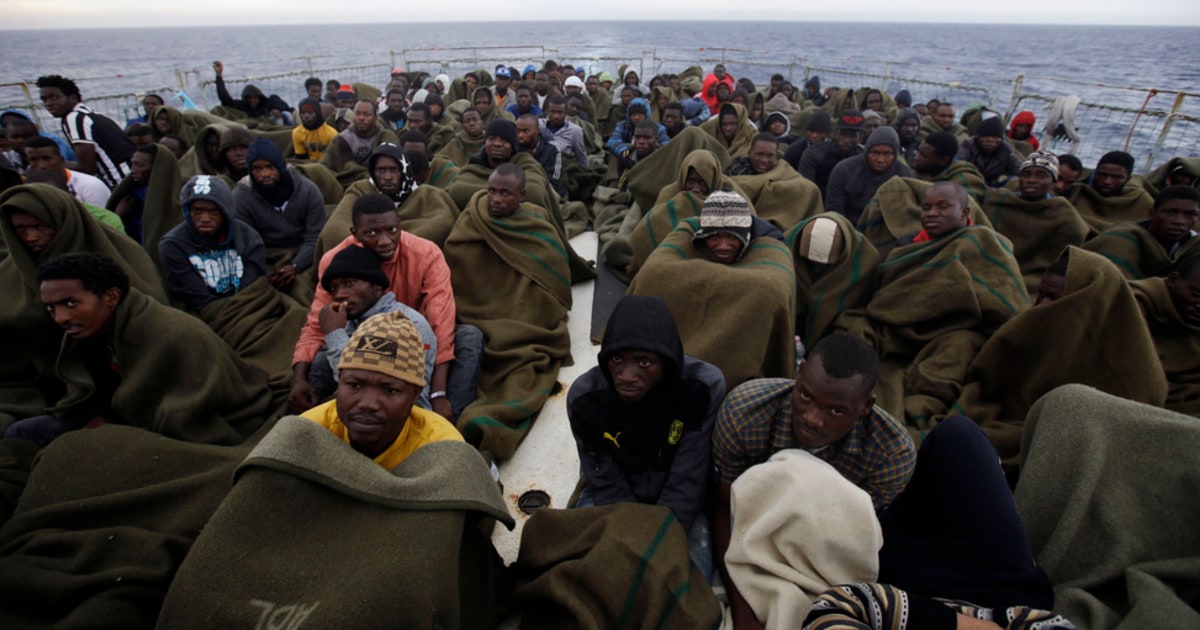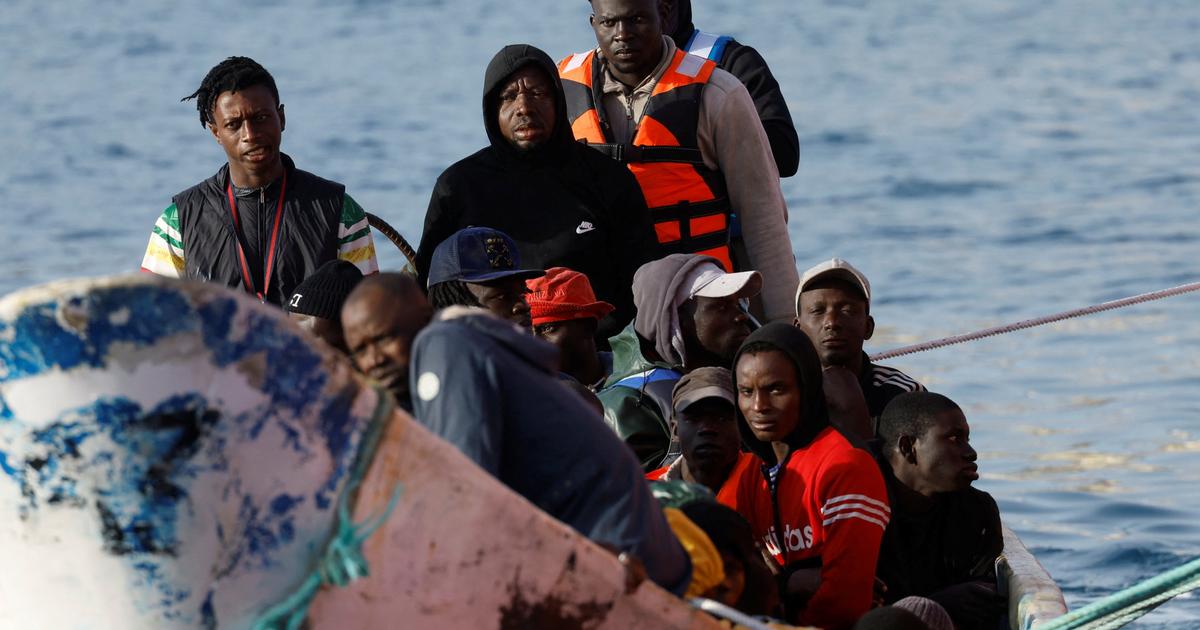Migrants walk towards the border wall after crossing the border in El Paso, Texas, on April 6, 2022. JOSE LUIS GONZALEZ (REUTERS)
Mexico and the United States have decided to step on the accelerator in search of a migration agreement that alleviates the growing tension on the border.
The US president, Joe Biden, and his Mexican counterpart, Andrés Manuel López Obrador, held a telephone conversation on Friday with the focus on migratory flows and the rapprochement of positions ahead of the Summit of the Americas, which will be held in June. in Los Angeles.
One of the conclusions was the need to intensify the negotiations even more, for which the Mexican Foreign Minister, Marceo Ebrard, travels to Washington on Monday with the aim of solidifying the bridges of development cooperation, the tool on which they aspire to build a new migration agreement.
Ebrard's visit is framed, in any case,
The Secretary of National Security of the United States, Alejandro Mayorkas, took an old motto from the drawer this Sunday that has been used both in the times of Donald Trump and by the current Administration: "Don't come."
Mayorkas, one of Ebrard's interlocutors during his agenda on Tuesday, justified the tone of the warning with hard data.
In 2021, all records of illegal crossings into the United States in recent decades were broken and the latest official data for this year indicates that around 7,000 people are detained every day by the Border Patrol.
Mayorkas also presented the projection in figures in the face of the foreseeable withdrawal of the so-called Title 42, a guideline applied by Trump in the midst of a pandemic that allows the immediate return of migrants at the Mexican border under pretexts of health security.
US forecasts are that, once the measures are withdrawn, the flow of people seeking to cross the border will multiply by three, reaching 18,000 migrants a day.
“It is our responsibility to be prepared for different scenarios.
There is no doubt that if we do reach that number, it will be an extraordinary strain on our system."
The withdrawal of Title 42 is, in any case, stalled for the moment.
The Democratic administration initially planned to lift the ban in late May.
But the decision set off a showdown with Republican governors and has become one of the central issues in the run-up to November's midterm elections.
Conservative governors in Arizona, Louisiana and Missouri took the matter to court, and a first federal court ruling halted the government's attempt to lift the measure for two weeks.
Biden himself was on Thursday in favor of maintaining the regulations if the justice so decides.
A new hearing is scheduled for May 13.
The largest stretch of the border, the almost 2,000 kilometers that separate Texas from the Mexican states of Chihuahua, Coahuila, Nuevo León and Tamaulipas, has been the scene of tension in recent weeks.
Protected by an exhaustive use of Title 42, the Texas governor, Greg Abbott, tightened the controls for Mexican trucks, causing a severe blockade at the border crossing.
On the eve of his trip to Washington, the Mexican foreign minister stepped out of the conflict.
Ebrard expressed a resounding rejection of calling Abbot's strategy "extortion."
In addition to Mayorkas, the Mexican foreign minister's agenda includes Secretary of State Anthony Blinken and a specific meeting on investment plans in Central America and southern Mexico.
The project of a joint plan for the migratory phenomenon, away from the diplomatic pressures and the police approach of the Trump era, goes through launching cooperation programs in the territories of origin of the migrants.
That is the shared vision between Mexico and the United States, although at the moment there has not been much practical progress.
President López Obrador will visit the northern triangle of Central America this week, with stops in Guatemala, El Salvador, Honduras and Belize before diverting and flying to Cuba to meet with Miguel Díaz-Canel.
The stop in Havana is also relevant in the bilateral relationship with the US and ahead of the Summit of the Americas.
Mexico defends that the conclave be held "without excluding anyone", in reference to the participation of Cuba.
subscribe here
to the
newsletter
of EL PAÍS México and receive all the informative keys of the current affairs of this country

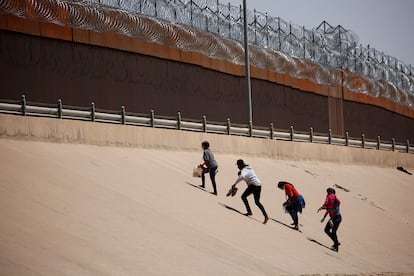

/cloudfront-eu-central-1.images.arcpublishing.com/prisa/CQSZWCMFFEISWLLJKA76I3TGKA.jpg)

